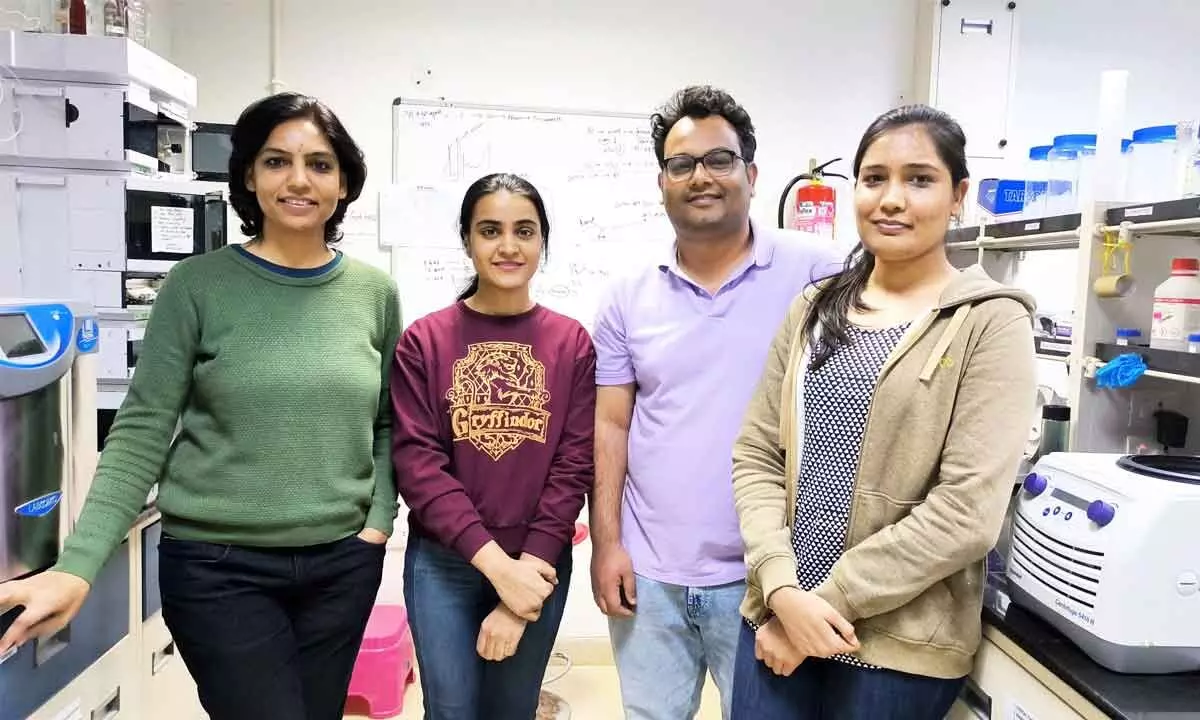IISER Bhopal researchers develop breakthrough technology for protein tagging

The research team has developed the ‘Baylis Hillman orchestrated Protein Aminothiol Labelling’ (BHoPAL) technology. This innovative approach enables the attachment of necessary chemical parts to specific sites on proteins, addressing the longstanding challenge of preserving protein function when treated with chemical substances
Researchers at the Indian Institute of Science Education and Research Bhopal (IISER Bhopal) have introduced ‘BHoPAL,’ a pioneering technology for attaching chemical tags to proteins without compromising their efficacy. The breakthrough technique opens new paths for visualizing proteins inside cells and facilitating selective drug delivery to diseased cells.
Dr. Dimpy Kalia, Assistant Professor at the Department of Chemistry, IISER Bhopal, the research team has developed the ‘Baylis Hillman orchestrated Protein Aminothiol Labelling’ (BHoPAL) technology. This innovative approach enables the attachment of necessary chemical parts to specific sites on proteins, addressing the longstanding challenge of preserving protein function when treated with chemical substances.
The applications of this technology are twofold. Firstly, it allows the attachment of proteins to fluorescent chemical tags, enabling their visualization within cells. This, in turn, facilitates studies aimed at understanding how proteins perform cellular functions. Secondly, BHoPAL supports the linking of drugs to antibody proteins, ensuring selective drug delivery to specific cells, such as cancerous cells, thereby minimizing undesirable side effects.
Dr. Dimpy Kalia emphasized the critical role of proteins in cellular functions and the significance of effective approaches to study proteins within cells for therapeutic purposes. The BHoPAL technology, published in journal Nature Communications, presents a breakthrough in overcoming the challenge of protein dysfunction during chemical treatment.
To test the efficacy of the BHoPAL platform, the researchers introduced a novel chemical reaction between N-Cysteine, an essential amino acid in proteins, and Baylis Hillman adducts. The resulted in the formation of a linkage, specifically on certain sites of the protein, a feat that was previously extremely challenging. The groundbreaking approach allows researchers to label multiple sites on a protein swiftly, expanding possibilities in chemical biology, synthetic chemistry, and medicinal chemistry. Dr. Dimpy Kalia highlighted the diverse applications of BHoPAL in various fields, including cancer therapy through the fabrication of antibody-drug conjugates (ADCs). Moreover, the technology contributes to basic biological research by enabling the imaging of proteins within human cells. What sets BHoPAL apart is its capability to attach chemical agents to any site on the protein, revolutionizing processes that were once difficult to achieve. The technology holds promise for disease diagnosis, cellular imaging, drug development, and a deeper understanding of drug-target interactions at the molecular level.
As IISER Bhopal continues to pioneer advancements in scientific research, the introduction of BHoPAL marks a significant leap forward in the pursuit of innovative solutions for drug development and cellular studies.








